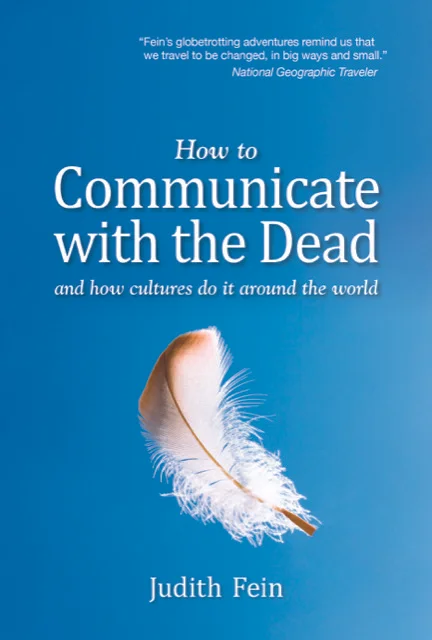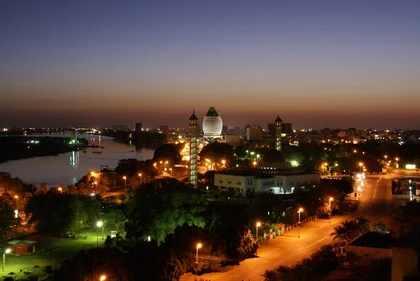Turkish Timber
By Mike Chambers
Mount Ararat loomed large in the dusty minibus window. Snow on the top, a cloud partway down and a huge green base occupying a big part of the horizon. The western travellers peered out the window joking they should be able to see the Ark just where Noah had left it. At the Iran-Turkey border crossing a few hours before, the atmosphere had been tense. It was 1976 and Iran had just experienced regime change, but now we were a couple of hours into Turkey and the locals in the van with us seemed oblivious. They just continued napping, heads nodding as the minibus navigated the potholes.
“Overlanders" who travelled all the way across Asia by local means were famous in the mid-seventies for travelling on the cheap. The "Hippy Trail" traversed South East Asia, India, Nepal, Pakistan, Afghanistan, Iran, and Turkey. They walked in the mountains, went to the villages and saw the famous sites; but mostly they smoked hashish. My fellow travellers were acting like they were still in Afghanistan where being offered a spliff by local travellers was a common courtesy.
Our bus pulled into Dogubreyazit for a short stop. The town looked like many in Iran and Turkey. Solid crowded architecture, busy streets and an air of history nonchalantly ignored by a busy population. We wound our way to the central square which opened up with self-important municipal buildings and a light crowd on the everyday hustle. The little bus bounced around on the cobblestones as the passengers, local and overlander alike, looked around at the town square. Arriving in Turkey should have been a bit of a celebration but Iran had been tense and arriving in Turkey was more like a relief than a party. Now they could just let grumpy be grumpy.
I was in the back row and a tall, heavy toking Australian sat ahead of me beside the sliding side door of the old VW van. The driver pulled up, set his brake and told us in Turkish we would stop for a half-hour. The announcement got translated with the help of some local passengers and the driver opened up the sliding door to release us.
Apparently, the locals knew exactly where the bus was from and the hawkers, who thought they might sell trinkets or food to the tourists, mobbed-up to the door in short order. One or two travellers had already made it out when the Australian backpacker stepped down, confronted by a solid wall of Turkish peddlers' hands out looking for a deal.
The Australian had been eating walnuts and was tired, certainly stoned, and perhaps assumed that he was due greater courtesy. He held out his hand and, almost theatrically, as he was still munching, sprinkled the broken shells of the nuts into one of the outstretched hands. Then, the most amazing thing happened. I was next to disembark and saw the scene from over the Australian's shoulder.
The babbling of the crowd of peddlers stopped instantly. Everyone who had been looking down at their goods looked up at the same moment. The tone changed from a melange of positive-sounding sales pitches to stone-cold silence. A second later, as the volume started to come back on, the Australian clicked to the meaning and took off at a run. He slipped through a gap in the crowd and headed across the square. The crowd was electrified and twisted around to see him sprint. As he pulled away, the group seemed to seethe with anger, especially the one who had received the insult, who stared for a couple of seconds at the shells in his hand. Then he threw them to the ground and broke out of the circle of hawkers. He ran a few meters to where a decorative sapling was supported by a square timber, pulled the post loose from the earth and headed out after the westerner.
In the commotion, I had ended up just about where the Australian had made the insult, but everyone was looking out over the square. The insultee chased the insultor across the cobbles, waving his five-foot club. I manoeuvred along the side of the van to the back where there was less action. Meanwhile, the Australian zigged and zagged as his assailant chased after him, waving the impressive timber. A few moments later, a tractor appeared from a side street and accelerated in front of the Australian, the driver frantically indicating to him to jump onto his rear hydraulics. He did, and the tractor pulled away from the attacker, heading, we assumed, for the police station.
The bus driver was upset and excitedly ordered everyone back in the bus right away. Obviously, we needed to find our missing man and get out of town. I moved from behind the bus to the sliding door just as the timber toting assailant got back to the van. He saw me, walked straight up and let rip. It was an over the shoulder swing that curved up, over, and down - almost vertically – like an axe. Aimed straight for my head. If it hit square it would have certainly dropped me right there, and if I went down mob mentality could easily take over.
The long elaborate swing gave me a small slice of time; just enough to incline my head urgently to the left. The strike came home just enough to the right side of my head to allow it to graze rather than hit home with full force. The momentum kept it going down to my shoulder, which absorbed the impact. I had dodged the first danger and was still on my feet. My situation, though, was still dangerous. If I reacted angrily in the middle of an angry crowd, that could be the end. In later years, I had seen people beaten to death by crowds in the local market. If I grabbed my head and started moaning and complaining that could also encourage the crowd to finish the job. Instead, I took a third option. To be clear, I didn't think about it. The decision happened without any conscious realization, with no thought process at all. I didn't even realize I had made a decision until it was over.
I laughed . . . or maybe it was more of a dismissive guffaw.
The timber-swinging salesman stopped for a second, confused. The crowd looked at him, wondering what he was going to do. In that sliver of time, I made my move from the back of the van to the sliding door. Not sprinting, just sliding around the back bumper. I guess the driver had been paying close attention and he took off without a second of hesitation, as I clambered on board.
We found the Australian at the police station and left town as quickly and quietly as possible. Mount Ararat was still there, as magnificent as ever, but the hippies and overlanders were no longer joking.
Mike Chambers recently returned to Canada after 30 years in East and Central Africa. He is now writing full time and fundraising for the Elephant Survival Organization UAV anti poaching surveillance service in Tanzanian parks and reserves. To learn more, visit http://michaelmargravechambers.blogspot.com/





